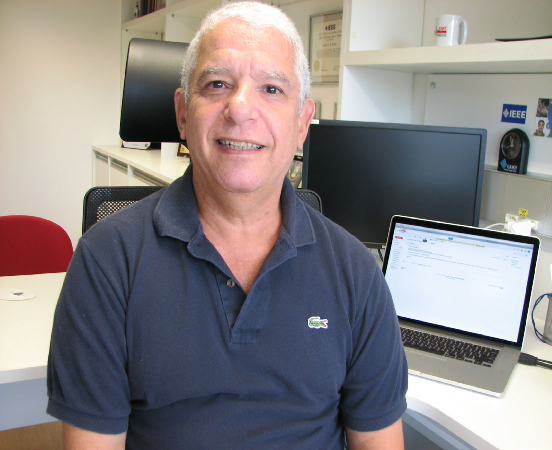CAS INVITED SPEAKER SEMINAR IN ELECTRICAL AND COMPUTER ENGINEERING
The IEEE Montreal Section, IEEE Circuits and Systems Society Montreal Chapter, IEEE Solid State Circuits Society Montreal Chapter, Department of Electrical and Computer Engineering, Concordia University, and ReSMiQ – Regroupement Stratégique en Microsystèmes du Québec invite you to attend the talk by Prof. Paulo Diniz from Department OF Electronics and Computer Engineering, Federal University of Rio de Janeiro on Tuesday March 1st, 2022. The event is virtual and registration is free.
Date and Time
Location
Hosts
Registration
-
 Add Event to Calendar
Add Event to Calendar
- Contact Event Hosts
-
For additional information, please contact:
Dr. M. Omair Ahmad
Chair of IEEE Circuits and Systems Society Montreal Chapter
E-mail: m.omair.ahmad@concordia.caDr. Weiping Zhu
E-mail: weiping.zhu@concordia.ca
- Co-sponsored by IEEE Montreal Section, IEEE Montreal Chapters of CAS and SSC
Speakers
 DR. PAULO S. R. DINIZ of Federal University of Rio de Janeiro
DR. PAULO S. R. DINIZ of Federal University of Rio de Janeiro
Data-Selective Online Learning
In the era of big data, profitable opportunities are now available for many applications. For example, online learning becomes an attractive tool to analyze information. However, harnessing meaningful data remains a challenge. Classical machine learning tools apply all training data without considering how relevant some of them are.
This current trend of pervasively acquiring data calls for some data-selection strategy, particularly if a subset of the data does not bring enough innovation. As a byproduct, in addition to reducing power consumption and some computation, data discarding results in more accurate parameter estimation. In many practical situations, it is possible to verify if the acquired data qualifies to improve the related statistical inference or if it consists of an outlier or a non-innovative entry. Highlighting online solutions, we discuss some adaptive filtering and machine learning algorithms enabling data selection which also address the censorship of outliers measured through unexpected high estimation errors. The resulting algorithms prescribe how often the acquired data is expected to be incorporated in the learning process based on some prior assumptions regarding the environment data or some simple estimation based on the available information.
Test results also show the effectiveness of the proposed algorithms for selecting data during the training step of neural networks to obtain the most meaningful data information and improve algorithm performance during training. The results apply to classification and regression problems leading to computational savings and classification error reduction. Based on open datasets, the examples corroborate the effectiveness of the discussed strategy.
Biography:
Paulo S. R. Diniz was born in Niterói, Brazil. He received his Electronics Eng. degree (Cum Laude) from the Federal University of Rio de Janeiro (UFRJ) in 1978, his M.Sc. degree from COPPE/UFRJ n 1981, and his Ph.D. from Concordia University, Montreal, P.Q., Canada, in 1984, all in electrical engineering. He wrote the books ADAPTIVE FILTERING: Algorithms Practical Implementation, Springer, Fifth Edition 2020, and DIGITAL SIGNAL PROCESSING: System Analysis and Design, Cambridge University Press, Cambridge, UK, Second Edition 2010 (with E. A. B. da Silva and S. L. Netto) and the monograph BLOCK TRANSCEIVERS: OFDM and Beyond, Morgan & Claypool, New York, NY, 2012 (W. A. Martins, and M. V. S. Lima). He is a Fellow of IEEE, and a Fellow of EURASIP. He also holds some best-paper awards from conferences and from an IEEE journal. In 2014, he received the Charles A. Desoer Technical Achievements Award from the IEEE Circuits and Systems Society. He is a member of the Brazilian Academy of Science (ABC) and of the National Academy of Engineering (ANE).
Email:
Address:Rio de Janeiro, Brazil

